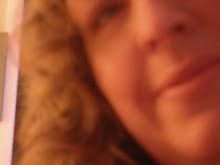 |
| Franz Jachim, some rights reserved |
In the ordinary world, we're all attentionally deficit. I work at home on a computer, and against my better judgment, sometimes while I work I flick backwards and forwards between my work and the internet because I simply can't help myself. On any given day I tend to have 10 browser pages open at once. Before I finish the end of one page, I have generally flicked over to another, or to check my email, or to look at Facebook when I'm on it (at the moment I'm not), or to look at Twitter.
We are starved for stories in the world we live in, though we're surrounded by words and great stories. But where are the good stories about us? Where do good stories fit in a world where the economy is the god, and we are forced to be its subjects? Where do we fit in? And how do we see each other? It feels like every turn in this world I am encouraged to see people as cogs. There is nothing to stop me from looking at you and seeing someone who is simply not-me, and simply in my way.
I sat in a university class a couple of years ago listening to fellow creative writing students who are 20 years younger than me talking about how flatpacked and meaningless this world is to them, how going overseas opens up their eyes because they see people who are living in ways that matter. There was something about hearing those people say those things that made me feel hope. Even though they have been born directly into consumer culture in a way that I wasn't 44 years ago, they still harbour the same hopes and desires for things that it's becoming harder and harder to find the words for.
This search for meaning, for story, is why I love writing and reading. And it's why I love going to the movies. Like Patrick Goldstein, I am an old-fashioned purist when it comes to the cinema. Even in the age of Netflix and DVDs, there is still a ritual about moviegoing that sets it apart from those other forms of viewing. Something about sitting in the dark feeding your face with popcorn with a whole lot of other people who are all sharing the same story turns it into a sacred space for me.
 |
| The old Barkly Theatre in the Melbourne suburb of Footscray. State Library of Victoria, some rights reserved |
When I go to the movies, I guess a lot of what I like to see is about meaning as well. When I was a child and before I could read, my Mum read a story to me every single night. By the time I was eight years old I was spending afternoons clambering up the Faraway Tree, polishing off one of Enid Blyton's books from the time it took to end lunch and begin dinner. It was escape, but it was also developing imagination. It was realising that there are as many different ways of looking at pretty much anything, and that every way you do look at something opens up a particular world at the top of your tree. It colours the way you see everything.
In the cinema, I am stuck in the best possible sort of way. I'm not at home. I can't go and get online. I am forced to sit there, even if my mind wanders. I don't want to check my mobile phone. Nor do I want anybody else to check theirs. We might miss something. I want us, just for this little time, to be all looking the same way and all seeing the same thing. Just for a couple of hours.
 |
| Moviegoers at the Melbourne International Film Festival, enjoying the wonderful Forum Theatre in Melbourne's centre. Pic by Anne Holmes, some rights reserved |



